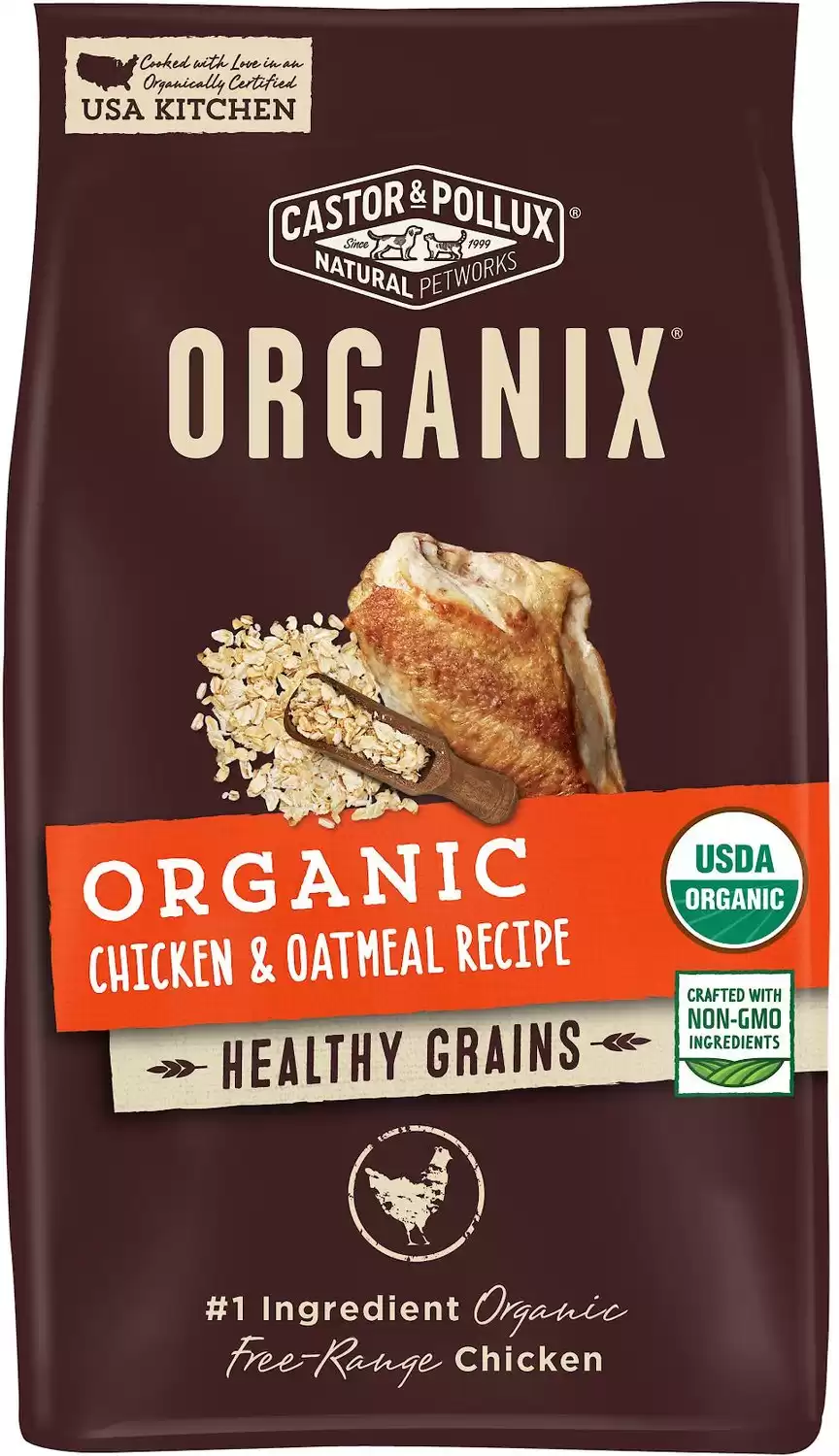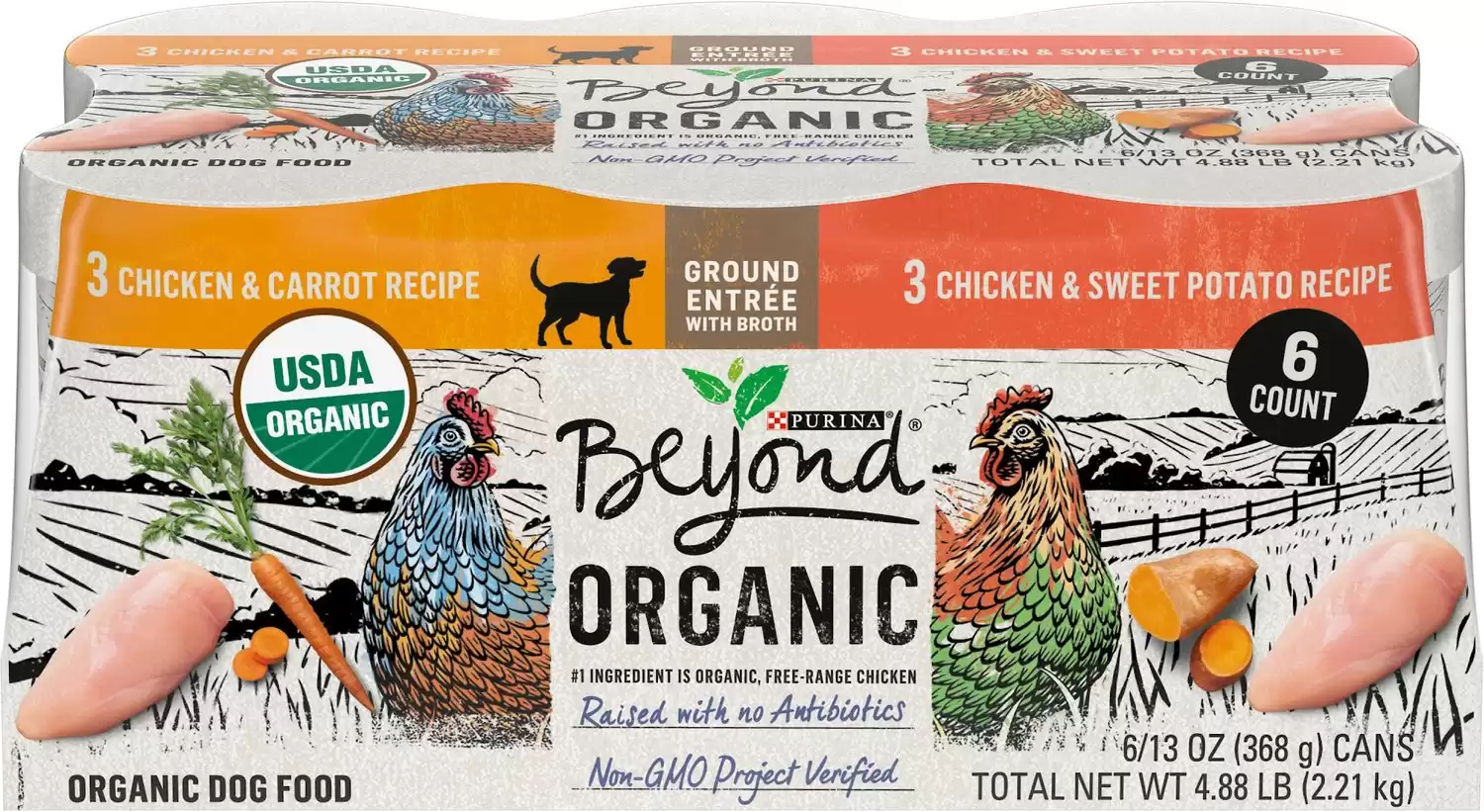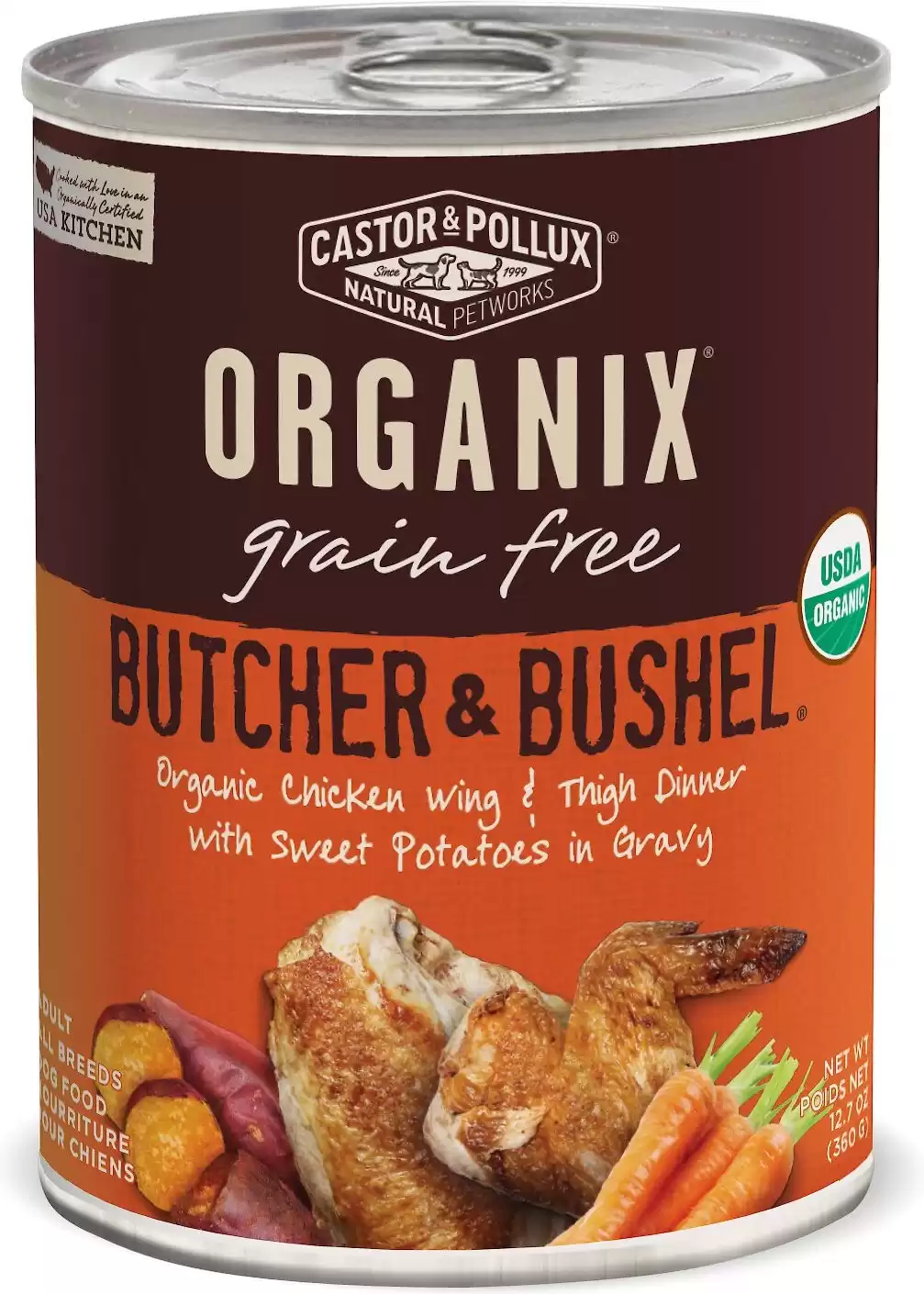Who can resist those big puppy eyes staring at us while we eat avocado? When Spike drools all over the place as we chop up avocado in the kitchen, do we really have to say no? Absolutely not! There are several reasons you may want to give your dog avocado as a treat. Avocado is an excellent source of healthy fats, vitamins, and minerals that can be beneficial for your dog. It can help improve their coat and skin health, and it can also help with joint pain.
This article will discuss the benefits your dog can have from enjoying this as a treat. We’ll also cover valuable information like how much you should give your dog, what parts of the avocado are safe to provide them with, and more. Your dog will appreciate you taking the time to learn about what they can eat, so keep reading!
• Organic dog food made with superfoods
• Free from artificial ingredients
• Multiple flavor and sizing options
• USDA Approved
What Are the Benefits of Avocado for Dogs?
Avocados have several vitamins in them, and each one has different benefits. Some of the benefits of each vitamin are:
- Niacin (Vitamin B3): Niacin can help boost metabolism, lower cholesterol levels, and even improve cognitive function. Deficiency in Niacin can cause fatigue and digestive issues.
- Magnesium: Every cell in our body contains magnesium, and it plays a role in over 300 biochemical reactions. Those reactions include muscle contraction, nerve transmission, and energy production. Magnesium helps to absorb calcium and potassium, two other essential nutrients. A lack of magnesium can lead to muscular weakness in dogs.
- Riboflavin: Also known as Vitamin B2, this plays a vital role in energy production, metabolism, and cell growth. It helps to protect the dog’s nervous system and eyesight.
- Vitamin K: It helps form blood clots and aids in bone growth. While all dogs need some vitamin K in their diet, puppies and pregnant dogs may need extra since they grow rapidly. Vitamin K deficiency is rare in dogs, but if your dog isn’t getting enough of this vital nutrient, they may suffer from bleeding problems or bone deformities.
- Pantothenic Acid: This is sometimes referred to as the “anti-stress” vitamin because it can help reverse some biological damage that stress can cause. It keeps your dog’s skin healthy, aids in absorbing other nutrients, and helps produce energy.
- Pyridoxine: This is involved in a wide range of biochemical reactions and plays a vital role in metabolism, immunity, and nervous system function. Benefits of this include improved metabolism, reduced inflammation, and enhanced nerve function.
- Vitamin C: It’s an essential nutrient that helps to keep your dog’s immune system functioning correctly. It fights off infections and promotes healing. Additionally, Vitamin C is necessary for collagen production, which helps keep your dog’s skin and coat healthy.
- Folate: This will help prevent birth defects and support puppies’ normal development. While all dogs need folate, pregnant and nursing mothers need this more.
- Potassium: Dogs need potassium to maintain healthy blood pressure and support proper muscle function. It aids in absorbing nutrients from food. Feeding a dog a diet rich in potassium can help keep them healthy and prevent various health problems.
- Vitamin E: Like vitamin C, it helps boost the immune system, keeping dogs healthy and preventing disease. Vitamin E is also important for skin and coat health, helping to keep the skin supple and the coat soft and shiny. In addition, vitamin E helps to protect cells from damage, reducing the risk of cancer and other diseases.
- Beyond Organic non-GMO dog food pate with free-range chicken
- No prohibited synthetic pesticides or fertilizers
- Added vitamins and minerals and with no artificial colors, flavors or preservatives
- No corn, wheat, soy or poultry by-product meal
What Are the Risks?
When feeding your dog avocado, be careful of a few things. The pit of the avocado contains a substance called persin, which can cause vomiting, diarrhea, and difficulty breathing in dogs. If your dog has ingested the pit of an avocado, it is crucial to seek veterinary care immediately. While most dogs recover from it with no lasting effects, some may experience more severe problems. In extreme cases, avocado pits can cause pancreatitis, which can be life-threatening.
The skin of the avocado also contains persins. Fortunately, there are steps that dog owners can take to protect their pets from this potentially fatal condition. Use a peeler to ensure you have removed the skin completely off. Immediately dispose of the pit as soon as it is removed from the avocado. Once completed, rinse it carefully to get rid of any debris.
Besides exposure to persin, the fruit contains a lot of fat. Too much fat of it can lead to pancreatitis. Symptoms of the condition include vomiting, diarrhea, weight loss, and lethargy. If your dog shows any of these signs after eating avocado, it’s essential to take them to the vet right away. Pancreatitis is a severe condition that can be fatal if not treated promptly. Aside from gastric issues like diarrhea or vomiting, there is also a risk for myocardial damage.
Allergic reactions aren’t likely but are possible. Keep an eye out for any signs of your dog having an allergic reaction like swelling around the mouth, hives, or breathing issues. If you see anything alarming or your dog eats the wrong parts of the avocado, contact your vet and see if you need to take them in for an emergency visit. Before introducing your dog to a new food, it’s always helpful to ask a vet if you have any questions or if they have any medical conditions.
•Free-range protein organic wet dog food
•Multiple flavor variations
•USDA approved
•No artificial ingredients
How to Feed Your Dog Avacodo
Dogs can have 2 to 3 bite-sized pieces once a week at most. It is always good to err on the side of caution when dealing with smaller dogs. You may want to give them one bite-size piece. Guacamole is different then just plain avocado. It often has garlic or onions in it. Your delicious chip dip can be harmful to your dog.
While garlic is often a healthy food for humans, it is actually quite bad for dogs. Garlic belongs to the Allium family of plants, including onions, chives, and leeks. These plants contain sulfoxides and disulfides, which can cause Heinz body anemia in dogs. Symptoms of this condition include weakness, pale gums, rapid respiration, and lethargy. In severe cases, garlic toxicity can even lead to death. Therefore, it is best to avoid feeding garlic to your dog altogether.
Onions contain a compound called N-propyl disulfide which can cause anemia in dogs. When a dog eats onions, it can mess with the dog’s red blood cells, causing them to break down. This can lead to fatigue, weakness, and shortness of breath. In severe cases, onion poisoning can be fatal. Dogs can be exposed to onions in many ways, including eating them directly, licking them off your plate, or getting them in their food. If you suspect that your dog has eaten onions, watch for signs of anemia and contact your veterinarian immediately.
Dogs can enjoy avocado in moderation, just like their owners! So, if you’re looking for a new and exciting way to treat your furry friend, why not give it a try? As long as it’s in moderation, feeding your dog this nutrient-rich fruit is sure to bring about some fantastic benefits. Just be careful not to give them too much. Always check with your vet to make sure it’s okay, just to be on the safe side. When it comes to your dog, the extra step of a medical opinion can be helpful.
The photo featured at the top of this post is © iStock.com/Iuliia Pilipeichenko
Ready to discover the top 10 cutest dog breeds in the entire world?
How about the fastest dogs, the largest dogs and those that are -- quite frankly -- just the kindest dogs on the planet? Each day, AZ Animals sends out lists just like this to our thousands of email subscribers. And the best part? It's FREE. Join today by entering your email below.
Thank you for reading! Have some feedback for us? Contact the AZ Animals editorial team.









